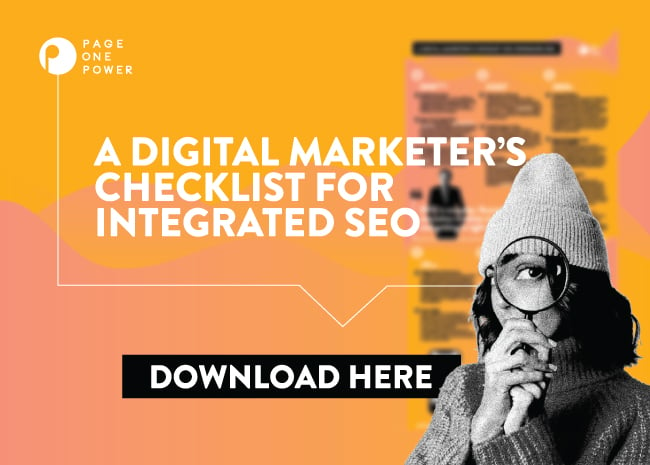What is SEO competition?
A competitor, in the context of SEO, is a website or webpage that is competing with your target page for ranking in the search engine results.
Table of Contents
SEO Competition: What Is the Difference Between Keyword and Conversion CompetitorsKeyword Competitors
Conversion Competitors
SEO Competition Analysis and Strategy
How to Identify Competitors
How to Leverage Your Competitors’ Content
How to Beat Your Competitors With Your Own Content
Becoming Competitive
Keyword Competition Tools
Competition Scores
SEO Competition: What Is the Difference Between Keyword and Conversion Competitors
A competitor, in the context of SEO, is a website or webpage that is competing with your target page for ranking in the search engine results. There are two primary types of competitors: keyword competitors (also known as “semantic” competitors) and conversion competitors (also known as “industry” competitors).

Keyword Competitors
A keyword competitor is a web page that is trying to rank for the same search terms as your target page. For example, if your target page was trying to rank for the longtail keyword: “Loch Ness monster in Scotland history,” anything other than your target page that comes up in the SERP (search engine results page) is a keyword competitor.
SEO Keyword Research
Read our comprehensive SEO keyword research guide to learn how you can get your web pages to show up higher in the SERPs.
Link Building Guide
Check out our ultimate link building guide to learn how to earn powerful backlinks to empower your web content in search.
Conversion Competitors
A conversion competitor is a web page or website that makes money the same way that your target page or website does. In other words, you are both competing for the same conversions from the same target audience.
For example, if your website was dedicated to tracking sightings of the Loch Ness monster, a conversion competitor would be a site that also tracks or documents sightings of the cryptid. A mommy blog would obviously not be a conversion competitor for your site, but neither would a site that analyzes the lore origins of various cryptids. A website can be about a similar topic without being a conversion competitor; it just can’t be doing the same thing or giving the same information as their main purpose.
SEO Competition Analysis and Strategy
Knowing who your competitors are and what kind of competitor they are is only the first step. You also need to know how to use that information to your advantage to become their competitor.
How to Identify Competitors
As mentioned, a quick and easy way to identify competitors is to type the keywords you would like to rank for into the search engine, and determine which other websites are generally providing the same service, product, information, etc. as yours. Essentially, doing quality keyword research ought to naturally reveal who all are competing for your target terms. However, there is much more to this method.
In all likelihood, not all of your audience is finding the products and information by directly googling it. For example, if someone is in the market for Loch Ness monster plushies, they may first google review sites for plushie distributors and Loch Ness merchandise shops rather than “Loch Ness Plushie.” Therefore, it is also important to scout out these channels of discovery.
Furthermore, not all competitor identification has to be technical, even if your marketing methods are. The grapevine is not obsolete, and it is very much possible to determine competitors through common knowledge (any local bookstore knows that Barnes and Noble is a competitor), or from word of mouth (you are a diner, and customers say you remind them of another diner in the area). It is also important to keep in mind companies that sell a variety of products, such as Amazon. Amazon sells almost everything; that means that they are a competitor to an enormous range of businesses, and as a result, it can be easy to forget they are a competitor to specialized businesses. Don’t miss the forest for the trees.
Customers care about their options — any and all of them. They don’t care who you think your competitors are or who you would like to be associated with. Therefore, it is important to approach competitor identification for SEO purposes with an objective outlook rather than an eye long-term branding.
How to Leverage Your Competitors’ Content
Once you have established who your competitors are, you can use that knowledge to inform your content creation strategy. This will largely involve identifying which factors are boosting highly-ranking competitors, and any aspects they may have overlooked or failed to deliver on. In this way, you can use their content as a vague template, emulating what they did successfully, while making improvements where available.
For example, if you find that your top-ranking competitors for an article about the history of the Loch Ness monster all wrote definitions right at the top, along with a “historical overview” section, an “etymology” section, and a “popular theories” section, it may be in your best interest to use a similar format to inform your own choices about coverage, length, detail, and organization. However, you may also re-word those headings to better optimize them for what people are searching for, or you may add sections that make for a more in-depth article, such as “Famous Sightings,” or “Tracking Map.”
How to Beat Your Competitors With Your Own Content
Furthermore, it is rarely in the best interest of a content creator to link to their competitors, both industry and semantic. Linking to a page indicates to Google that you believe them to have authority in the subject. As such, by linking to a competitor, you will have made Google less likely to rank you well against them, since they have similar content and you are demonstrating that you view them as an authority. This makes the competitor look like the far stronger option.
However, there are some exceptions to this. Highly reputable government websites, for example, may be necessary to link to in order to provide vital documents and information. A page that is discussing tax breaks will likely need to link to the forms for those tax breaks on the official IRS website in order to thoroughly cover the subject. Even for an accountant, it makes sense to link to the IRS as the ultimate authority on tax matters. That is a positive association to have.
Becoming Competitive
Making your website competitive against pre-existing behemoths may seem impossible, or just unnecessary, especially if your website is small or local. It is understandable to ask why you are writing about socks when you are a shoe retailer, or why you are writing definitional content about tort law when you are a local criminal law prosecutor. However, demonstrating to Google that you are a strong authority on the topic and related information should boost your overall ranking.
Furthermore, while you may never rank on page one while competing against well-established law sites for your definition of tort law, you will be a competitor. Your local competition often will not be. Demonstrating that you can compete on some level with the big fish will improve your overall authority and increase your ranking compared to the little fish in your area, who only focus on their local conversion pages.
Finally, increasing the quality and diversity of content on your site can make you more relevant to more of the web. Relevance is key to earning backlinks, and backlinks are essential to having your content and your converting pages become visible in the SERPs. If you can create better content than the competition, you are better positioned to earn links and build your own authority.
Keyword Competition Tools
Keyword analysis tools such as SEMRush and SimilarWeb allow users to identify what keywords their competitors are ranking for, as well as what the estimated search volume is for those keywords (among many other things). This can be a valuable means of determining which keywords would be best to focus on when creating your content.
Competition Scores
Some systems attempt to “score” websites and webpages based on their comparative authority. The most popular of these are Moz’s “Domain Authority” (DA) and “Page Authority” (PA) metrics, which assign a score of 0-100 to a page and its root domain. This is useful information for several reasons. For example, a page with a high PA score may be utilizing some useful techniques that you could emulate to your advantage — particularly if the DA is not spectacular (so the PA isn’t just piggy-backing on the DA) — but this also means that the page is a competitor that is going to be tough to beat.
Although these scores can be helpful in competitive analysis, it is important to keep in mind that these scores are estimates, and that it is impossible to determine such information with a hundred percent accuracy, due to the fact that the relevant data is not available to the public.
As in many areas of SEO, determining the authority of competitor websites involves an element of educated guesswork — but with the right tools and techniques, you can come to valuable conclusions and establish yourself as a competitor in the SERPs.

